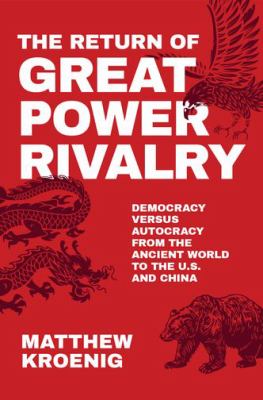
Book
|
The return of great power rivalry : democracy versus autocracy from the ancient world to the U.S. and China
Copies
3 Total copies, 3 Copies are in,
0 Copies are out.
Title
The return of great power rivalry : democracy versus autocracy from the ancient world to the U.S. and China
Call No
327.112
Authors
Subjects
Language
English
Published
New York: Oxford University Press, [2020]
Publication Desc
xiii, 288 pages : illustrations, maps ;
ISBN
0190080248
LCCN
2021279544
Dimensions
24 cm









